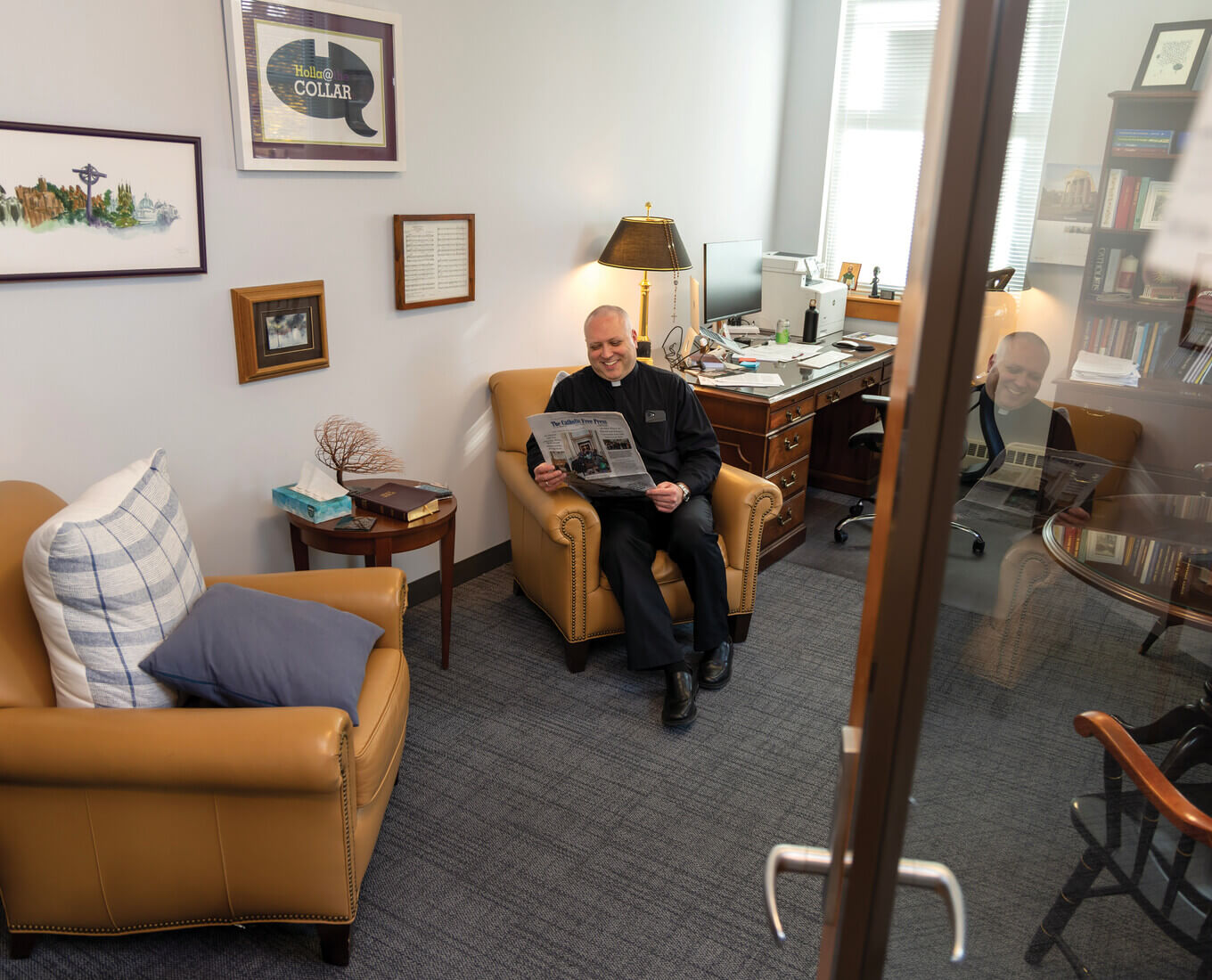Henry J. Meiser '27 has been an advocate for youth suicide prevention since high school, calling for more student voices in high school and college mental health initiatives.
Now he’s taking his work to the next level, having been appointed as the Governor’s designee representing young adults on the Maryland State Commission on Suicide Prevention.
He originally served as the commission’s student representative from October 2021 to June 2023 and stepped down the summer before starting college at Holy Cross. As the young adult representative, Meiser will serve on the commission at the governor's discretion or until he turns 26.
“I was representing high school students, or anyone under the age of 18 in my former role, and now I’m representing people between the ages of 18 and 24 and in all of the colleges in Maryland,” he explained.
The more things change, the more they stay the same
Even though he’s advocating on behalf of college rather than high school students, Mesier said one thing has not changed: “Students are the most difficult demographic to represent.”
The commission is comprised of representatives from a variety of backgrounds and experiences including different ethnicities, members of the LGBTQ+ community and those whose lives have been affected by suicide, whether having lost a loved one or personally experienced suicidal ideation. Students can encompass all of these categories, he said, which makes his role of representing them challenging: “I’m having to represent all of those viewpoints. So trying to do so with just my perspective is just not practical because I can only represent my experiences.”

